Getting professional support and care for your addiction is an essential element in your journey toward sobriety. Addiction, whether to alcohol or drugs, is a disease. It is a chronic disease that requires treatment. You need to learn skills that you will use for the rest of your life to avoid using again. Because professional care is so important to recovery, it is a good idea to spend some time finding the facilities and the caregivers that will best match your needs. No single approach or treatment philosophy works for everyone. You need to find what works for you by doing some research and asking questions.
Will Your Family Support You In Recovery?
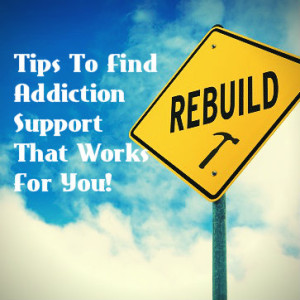 Besides professional care, having the love and support of family and friends is one of the most important tools for recovery. If you have no one you can rely upon for support, you may benefit from a residential rehab facility. This is the type of place in which you stay overnight for a week, a few weeks, or even a month. The support system is built in to the program and includes your fellow patients, counselors, doctors, nurses and staff members.
Besides professional care, having the love and support of family and friends is one of the most important tools for recovery. If you have no one you can rely upon for support, you may benefit from a residential rehab facility. This is the type of place in which you stay overnight for a week, a few weeks, or even a month. The support system is built in to the program and includes your fellow patients, counselors, doctors, nurses and staff members.
Do You Need Flexibility In Your Care?
If your family is available and actively willing to support you in your recovery, you could consider an outpatient program. Another reason to consider outpatient care is if you have other responsibilities that you cannot neglect for the weeks or months needed for residential care. Outpatient programs are designed to have flexible schedules so that you can get the support you need for addiction while still going to work during the day, keeping up with your classes at night, and meeting your family obligations on a day-to-day basis.
Will Religion Help You Stay Clean?
If you have a strong faith, you can find rehab facilities and treatment programs that include a religious element. Many people find that their beliefs are what help them the most when it comes to getting sober and staying clean. If this sounds like you, look for a facility or a program that is faith-based.
Do You Have Concerns About Mental Health?
It is not uncommon for addicts to also struggle with one or more mental health issues. If you have been diagnosed with depression, anxiety disorder, schizophrenia, bipolar disorder or any other mental illness, you need to receive care for your illness as well as for your addiction. The two are most likely intertwined. Make sure you look for a facility that recognizes the importance of a dual diagnosis. It is essential that you work with caregivers who are experienced at working with mental health and addiction together in order to get the best treatment.
How Will You Pay For Addiction Treatment?
Finally, make sure you select a treatment plan that you can afford to finish. There is no point in starting a treatment program only to quit early due to financial stress. If you have health insurance, find out what facilities and programs are covered. If you will be paying out of pocket, determine how much you can afford to spend and use that as part of your criteria for selection.
Finding the right treatment for addiction is important to your success. Treatment programs are not one-size-fits-all and to give yourself the best chance, you really need to shop around for the program and the professionals that will meet your needs. The Substance Abuse and Mental Health Services Administration is a good place to start for information. Take the time to read up and to make a wise choice.
Read More About Why You Need Fellowship To Recover From Addiction
Social support is the general term for the connections we develop and maintain between family members, friends and other loved ones or more distant acquaintances. Generally speaking, people with highly developed forms of these connections have an increased ability to withstand daily and traumatic stresses and cultivate a sense of mental/emotional well-being. In a study published in February 2014 in the journal Alcoholism: Clinical & Experimental Research, researchers from Purdue University explored the impact good social support has on the genetic and environmental risks for developing a diagnosable case of alcohol abuse or alcoholism.
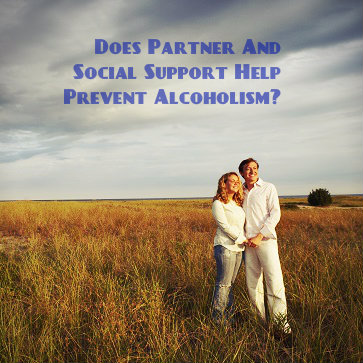 Benefits Of Social Support Networks
Benefits Of Social Support Networks
Social support networks can involve many people or just a few. In addition, they can form in informal settings such as friendships, blood relationships or intimate partnerships, or in more formal settings such as clubs, churches, associations or other organizations. Forms of support that can come from belonging to a given network include emotional support, physical or material support and the support provided by sharing various types of valuable or relevant information. In addition to improved stress resistance, current evidence indicates that people who can consistently rely on their social support networks experience benefits that include reduced risks for chronic illness, higher rates of survival when chronic illnesses strike and increased access to important resources and opportunities.
Genetic And Environmental Risks For Developing Alcohol Use Disorder
People who consistently misuse alcohol significantly boost their chances of developing alcohol use disorder (the modern-day term used to describe the symptoms of both alcohol abuse and alcoholism). Any given person’s overall odds for experiencing this disorder stem from both genetic and environmental factors. Broadly speaking, genetic factors come from inherited changes or alterations passed on through a person’s DNA, while environmental factors include all influences that first arise after a person is born.
The National Institute on Alcohol Abuse and Alcoholism reports that about half of all known risks for alcoholism are genetic in nature. Instead of acting in simple, entirely predictable ways, the inherited chances of developing alcoholism interact in any given individual and produce unique hereditary risk profiles. Similarly, environmental factors have a complex, overlapping impact on alcoholism risks rather than acting in completely predictable patterns. Despite the level of uncertainty involved, researchers and doctors can typically look at a person’s combined genetic and environmental risk factors and roughly determine his or her chances of developing diagnosable alcohol-related problems.
Impact Of Social Support On Risks For Developing Alcohol-Related Issues
In the study published in Alcoholism: Clinical and Experimental Research, the Purdue University researchers used an examination of 672 sets of adult twins to determine the impact of social support on both the genetic and environmental risks for developing alcohol-related issues. They conducted this project because very little research had been done on the alcohol-related effects of social support, in particular. Specific forms of social support under consideration included family-based support, friend-based support and the support provided by an intimate partner. The researchers used a sophisticated form of analysis to separate the effects of genetic influences from the effects of environmental influences in each study participant.
Intimate Partner Support And Impact On Alcohol Abuse
After reviewing their findings, the researchers concluded that, in any given individual, the mixture of genetic and environmental factors for alcohol-related problems varies according to how much social support that person gets from an intimate partner. Specifically, people with low levels of intimate partner support are affected by environmental factors more often than genetic factors, while people with high levels of intimate partner support are affected by genetic factors more often than environmental factors. The researchers also concluded that the presence of strong social support from a friend or family member does not have any substantial effect on the genetic and environmental risks for alcohol abuse or alcoholism.
Determining If Someone Will Be Susceptible To The Environmental Factors That Contribute Alcohol Problems
The authors of the study published in Alcoholism: Clinical & Experimental Research believe they have identified a potentially critical aspect of the underlying equation that helps determine if a person will be susceptible to the environmental factors known to contribute to the development of diagnosable problems with alcohol consumption. Specifically, they note the importance of knowing which types of social support reduce environmental risks. In the future, doctors may be able to use measures of social support to increase their ability to predict the eventual onset of alcohol use disorder in their patients.
Read More About 12 Step Programs – A Guide For Families Of Addicts
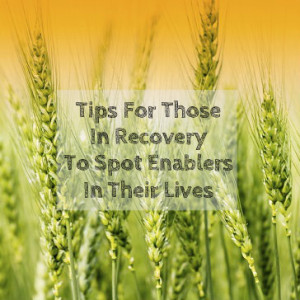 Getting sober is a major achievement and one you should be proud of. Addiction is a terrible disease and taking the steps to recognize it, to get help, and to get clean are important accomplishments. Now that you’re sober, you just need to maintain that sobriety. The process of recovering from addiction is a lifelong one, but there are things you can add to your life to help you avoid relapsing. Among these is the presence of healthy relationships. Ditch the enablers in your life and build new relationships with people who will support your sobriety.
Getting sober is a major achievement and one you should be proud of. Addiction is a terrible disease and taking the steps to recognize it, to get help, and to get clean are important accomplishments. Now that you’re sober, you just need to maintain that sobriety. The process of recovering from addiction is a lifelong one, but there are things you can add to your life to help you avoid relapsing. Among these is the presence of healthy relationships. Ditch the enablers in your life and build new relationships with people who will support your sobriety.
Who Are My Enablers?
Your enablers may not be easy to spot immediately. An enabler is anyone who encourages you to use drugs or drink, whether or not he means to do it. The way in which this person encourages your habit may be obvious. For instance, if you have friends from the days when you were using, and they are still using, it will be very difficult for you to be around them without giving in to temptation. These people may or may not actively encourage you to use, but the simple fact that they are not sober makes them enablers.
Enablers can also appear in more subtle ways. Maybe you have someone in your life that always made you feel bad about yourself. She criticizes you and attacks your sense of self-worth. She may not be telling you to use drugs, but by making you feel bad, she may cause you to be tempted to relapse. If you are not sure who might be bad for you as a sober person, ask someone you trust. Sometimes it’s easier for others to see the subtlety of an enabler.
What Is A Healthy Relationship?
A healthy and mutually supportive relationship, whether romantic or platonic, is one in which each person respects and trusts the other. Each person should also be honest with the other, even when it isn’t easy to tell the truth. People in healthy relationships communicate well with each other, they support each other and they maintain their own separate identities. If a friendship or romantic relationship, or even a relationship with a family member has these characteristics, and the person encourages you to stay sober, you have a healthy relationship.
How Do I Make New Friends?
So what if your relationships are mostly unhealthy leftovers from the days when you were using? It’s time to make new friends. First, turn to family members with whom you can establish, or re-establish, a meaningful relationship. You may feel intimidated by the idea of making new friends, but your family is not likely to turn you down. Rebuilding relationships with your family will give you the confidence to go out and meet new people.
When you’re ready to venture out and find new, sober friends, consider starting with your support group. You can make great friendships with people who understand where you have been and that you want to stay sober. Together, you can help each other avoid relapse. You might also turn to other organizations that are important in your life, such as your church or your school. Getting involved in volunteer work also gives you the opportunity to make new friends who will share your values.
Nourishing New Friendships
Once you have new, healthy, and supportive relationships, be sure to nourish them. Friendship is all about give and take. You will benefit greatly from having sober friends, but make sure you give back to them as well. Be a good friend and you will reap the rewards of healthy relationships.
Read More To Find Out If You Are A Chief Enabler For An Addict
Studies reveal that anti-smoking and anti-drinking campaigns are working. Smoking rates in the U.S. have fallen dramatically. But not everyone is being helped with their substance abuse problems.
Dr. Sarah M. Hartz, an assistant professor of psychiatry at Washington University School of Medicine in St. Louis, is the author of a new study done in conjunction with the University of Southern California that shows individuals with severe mental illness have higher rates of substance abuse.
Unique Treatment For Substance Abuse And Mental Illnesses
The National Alliance on Mental Illness says health professionals estimate that half of the individuals who suffer from a psychiatric disorder also abuse alcohol, tobacco or drugs. Trying to manage a mental illness becomes twice as difficult when it is coupled with trying to also manage a substance abuse problem. Each illness demands its own treatment and must be treated individually for the person to heal completely.
Higher Percentages For Drinking And Smoking
Half of the 20,000 participants in Hartz’s study were diagnosed with bipolar disorder, schizophrenia or schizoaffective disorder. When the psychiatric patients were compared with individuals from the general public, the psychiatric patients had higher rates of using alcohol, smoking tobacco, smoking marijuana and other drug use.
While 75 percent of the mental illness participants were tobacco smokers, only 33 percent of other participants smoked. Thirty percent of mental illness participants were binge drinkers compared to eight percent of other participants. Fifty percent of the mental illness participants used marijuana regularly compared to 18 percent of the other participants. Fifty percent also used other illicit drugs compared to only 12 percent of the mentally healthy participants.
How Race Plays A Role In Substance Use
In other studies on alcohol and drug abuse, race and ethnicity sometimes determines the prevalence of their use. Some groups are more susceptible to use than others. In this study, all races and ethnicities were susceptible if they had a severe mental illness.
Turning To Substances To Escape Negative Emotions Causing Hidden Problems
When mental illness affects thoughts and emotions, individuals sometimes turn to substance use to escape. Tobacco and alcohol use over the years can cause heart disease, cancer, liver failure and other physiological problems that can ultimately end their life. Dr. Hartz sees these physiological problems as the hidden problems.
People with a mental illness may be carefully watched for any signs of suicidal thoughts but not watched as carefully for emphysema. Because loved ones may be so concerned about immediate tragic events like a drug overdose or suicide, they may miss seeing long-term threats from tobacco, alcohol or other substances.
Hartz notes that mental illness patients have a shorter life span by one to two decades than the average person. This isn’t because of immediate tragedy spurred by their mental illness. Most of the causes are ones like cancer and heart disease that were developing in their body over the years.
Finding A Way To Help, Holistically
Mental health specialists look holistically at their patients. They seek and address all of the problems that are affecting the mind and body of a person with mental illness. Hartz believes that if all specialists were to ask their patients about their tobacco, drug and alcohol use that more patients could be led to a happier and healthier life. Through initial screenings and periodic follow-ups, patients could be monitored for any previous substance use or any new substance use that may develop during their treatment.
Trying the tried and true strategies of smoking and drug intervention doesn’t often work for mental health patients, cautions Hartz. Through her studies she has noticed that mental health patients need their own style of intervention in order to heal. As new strategies arise to combat alcohol and drug abuse specifically in people with mental illness, holistic healing can begin.
Read More About Holistic Rehab Therapy!
Almost without exception, alcoholics are tortured by loneliness. Even before our drinking got bad and people cut us off, nearly all of us suffered the feeling that we didn’t quite belong. Either we were shy, and dared not draw near others. Or we were noisy good fellows constantly craving attention and companionship, but rarely getting it. There was always this mysterious barrier we could neither surmount nor understand.” (A.A. Twelve Steps and Twelve Traditions, 57)
The Isolation Of The Addict
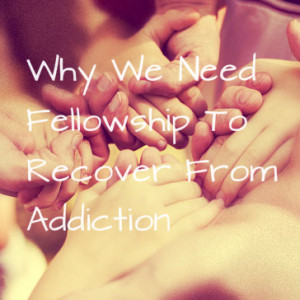 Isolation and addiction go hand in hand. Even if we were out every night and closing down the bars, surrounded by hordes of people, we felt somehow lonely. It wasn’t the presence of people we lacked, but relationship. In addiction we were confused about who we were and afraid to know our true selves. We used our addictions to hide from ourselves and to try to be the people we thought we wanted to be. Yet we suspected we didn’t belong and were quite certain that if people knew who we really were, they’d reject us. The loneliness was profound.
Isolation and addiction go hand in hand. Even if we were out every night and closing down the bars, surrounded by hordes of people, we felt somehow lonely. It wasn’t the presence of people we lacked, but relationship. In addiction we were confused about who we were and afraid to know our true selves. We used our addictions to hide from ourselves and to try to be the people we thought we wanted to be. Yet we suspected we didn’t belong and were quite certain that if people knew who we really were, they’d reject us. The loneliness was profound.
Fellowship: The Antidote To Isolation
The 12-Step Program is designed to begin bringing us out of isolation. That doesn’t mean simply throwing us in a room with a bunch of other drunks and junkies, it means helping us to know ourselves in ways we never had. As we work the Steps we learn to see ourselves honestly and we begin cultivating a real relationship with that self. We grow in humility and we lose our fear of rejection. Through the working of the Steps we are cleaning up the wreckage of the past and seeking to live well in the present by practicing the program principles in all of our affairs.
Meeting Fellowship Encourages Sobriety
Our isolation perpetuated our addiction. To recover, we do our part to begin breaking the secrecy that allowed our addiction to control our lives. The meeting is the place where we start this process. Knowing we are among those who have walked similar paths, we begin to feel comfortable opening up and being real. The meeting is a safe place where we won’t be judged or ostracized. There we find a system of support—people who are personally invested in our sobriety and wellbeing.
Cultivating Fellowship For Recovery
We can, of course, go through the motions without ever going deeper than surface level with our program fellows. But this only jeopardizes sobriety. We all need time to acclimate to the 12-Step life and we may not be ready to have complete strangers prying into our business, but we have to be moving in the direction of relationship. How?
By being intentional. The program recommends picking up the phone and talking with other members—ideally three a day. These don’t have to be profound conversations, but one day they will be. It’s an exercise in breaking down isolation and overcoming the fear of people. We don’t show up to the meeting late or duck out early. We force ourselves to interact. We take a sponsor and set up a schedule of regular interaction. We meet with other fellows in coffee shops to talk about the program. We serve. And we remember that coming out of isolation is one of the best secrets to lasting sobriety.
Life takes on new meaning in A.A. To watch people recover, to see them help others, to watch loneliness vanish, to see a fellowship grow up about you, to have a host of friends—this is an experience you must not miss.” (Alcoholics Anonymous, 89)
Read More About Starting Over And Embracing Life In Recovery
Continued From – In A Relationship With An Addict: Stay Or Leave? Part 1
Addressing Codependency Within Yourself
If, through Al-Anon or CODA, you have identified codependent tendencies, it is time to seek help for that problem specifically. A relationship with an addict is never healthy, but neither is a relationship with a codependent. Codependency is a pattern that mimics addiction. If you hope to have healthy, functional relationships in the future, it is imperative that you begin working through this condition.
Ending a cycle of co-dependency is not easy and professional help may be required, as these patterns are usually deeply ingrained and rooted in childhood experience. Learning new, healthy patterns for relationships is not automatic and needs to be addressed intentionally.
Learning To Recognize The Deception And Manipulation Of Your Addict Partner
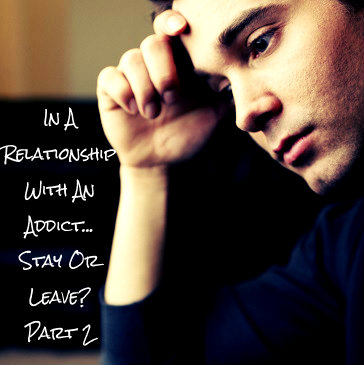 How many times has your addict partner blamed you for his or her problems? Or, when you confronted your partner about the addiction, the focus was shifted to you, claiming that if only you were more this or less that, the addicts wouldn’t drink or use in this way? What about all of the excuses of an addict?
How many times has your addict partner blamed you for his or her problems? Or, when you confronted your partner about the addiction, the focus was shifted to you, claiming that if only you were more this or less that, the addicts wouldn’t drink or use in this way? What about all of the excuses of an addict?
Your partner’s addiction is, in no way, related to you or your perceived failings as a partner. Addicts are masters of deception, blame-shifting, excuse-making, and manipulation. Are you falling for it? Do you believe the addict even when you suspect he or she is lying? Do you fail to acknowledge red flags? Part of codependency is smoothing over issues or matters that may cause a fight but should be addressed. Are you allowing yourself to be manipulated?
Recovery May Not Be The Answer For The Relationship
As the non-addict partner, your focus has been on the addict—their needs, their issues, their failings, their protection, and their need to get into recovery. And sometimes the addict does actually pursue recovery, get sober, and join a 12-step community. It seems like this would be the ideal situation.
Not necessarily. Indeed, recovery is always the answer for the addict. There is never a time when it is better to stay in addiction than to get into recovery. But recovery may not be the “answer” for your relationship. The combination of an addict (them) and a non-addict/potentially co-dependent (you) creates a certain relational pattern that, while perhaps not ideal, is familiar. The addict is accustomed to being the screw-up or the authoritarian, and the non-addict is slotted into the role of caregiver, protector and hero.
Recovery changes that. Suddenly the sober addict is bringing a new dynamic to the relationship—taking ownership of their faults, attempting to set proper boundaries, devoting time to recovery and a 12-step community, and seeking the direction of a higher power. This can leave the non-addict in a quandary, not knowing how to act or respond to the sober partner, and not appreciating the shift in roles. Co-dependents get their fix from being rescuers, enablers and controllers. When they are relieved of that role, conflict often results.
Breaking Up With An Addict
A relationship with an addict can never be anything less than toxic. If you are dating rather than married to an addict, the ease with which you can leave the relationship is greater. In the case of marriage where children and a shared home may be involved, other tactics and attempts at recovery should be employed before declaring the marriage over.
For those who are in a dating relationship, the ties with an addict are somewhat easier to sever. While a breakup is always painful, you won’t have the added challenge of a legal battle. The hassle of splitting up possessions or finding a new place to live should not be a deterrent. Freedom and healing is worth that price.
If you fear that your attempts to leave the relationship will be met with violence or other maliciousness, it is wise to involve law enforcement, obtaining a restraining order if necessary. It is also helpful to have the names and phone numbers of shelters in your area where you could stay anonymously for a period of time if necessary.
Listening To Wisdom Of Others And Making A Healthy Decision For Yourself
While the opinions and advice of others need not dictate your life and the decisions you make regarding your relationship, it is often wise to listen to people around you. If your family and close friends are consistently encouraging you to send your partner packing, you may want to take heed. Think they don’t know him like you do, or that they just can’t see the real her? You may be right, but at some point you may need to ask yourself if you are the one who is not seeing the situation in all of its reality.
Whether you decide to stay or leave, you are seeing that not all problems in your relationship are the addict’s. You are gaining awareness of your own faults and perhaps your unrealistic expectations. Only you can decide if this relationship is right for you, but you are gaining the knowledge and understanding to help you make an informed and healthy decision.
Read More About How To Handle A Loved One With An Addiction
You know your partner battles an addiction and you’ve seen the toll it is taking on your relationship, not to mention your own well-being and sanity. Yet you stay. And the problem continues. How do you recognize an addict’s excuses? Is it possible to have a healthy relationship with an addict? Should you even try? How do you decide when it’s time to call it quits?
Unhealthy Attracts Unhealthy In Relationships
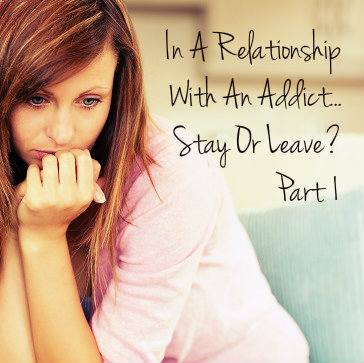 It helps to begin with a little soul searching. What keeps you in a relationship with an addict in the first place? The reality is that people who maintain relationships with addicts are often operating from a place of co-dependency and emotional neediness. Whether or not you stay in the relationship, it is probably time to start looking at some of your own issues.
It helps to begin with a little soul searching. What keeps you in a relationship with an addict in the first place? The reality is that people who maintain relationships with addicts are often operating from a place of co-dependency and emotional neediness. Whether or not you stay in the relationship, it is probably time to start looking at some of your own issues.
It is easy to make the relationship about the other person and his or her addiction and to be constantly focused on catering to the needs of the one who seems to be the “problem.” As a result, the non-addict doesn’t see the need to work on him or herself. In normal relationships, each partner is growing and changing in partnership with the other. In the case of a relationship with an addict, however, this normal growth and progression stagnates—often for both partners.
Examine Your Motives When In A Relationship With An Addict
People in relationships with addicts often avoid trying to honestly discover why they are in the relationship in the first place. No one can tell you it is time to end the relationship, but you might ask yourself why you think you want, or need, to stay.
Questions To Help You Work Through The Feelings Of Continuing Or Ending The Relationship With An Addict
- Are you afraid of being alone?
- Are you afraid you can’t find anyone better than your current partner?
- Do you believe that you can change him/her?
- Do you think you can love him/her out of the addiction and into a clean life?
- Do you optimistically believe that somehow things will just work out, even though there had been no evidence of that?
- Do you tell yourself it’s not that bad?
- Are you afraid of drastic consequences if you leave the addict? Has he or she threatened harm to self, you, or others if you end the relationship?
- Are you avoiding the hassle? Are you too lazy to make the break and deal with the consequences of splitting possessions and potentially having to find another place to live?
- Are you afraid to discuss the problems in your relationship or your desire to leave for fear of starting a fight? Are you afraid of physical abuse?
- Is the addict working to convince you there isn’t a problem, but maybe your gut is telling you differently?
- Has the addict vowed to go to AA, but failed to follow through?
- Do you think the addict can’t make it on his own without you?
- Are you afraid to present an ultimatum?
More “yes” answers than “no” suggest strong co-dependent tendencies.
Work On You And Your Own Issues
Any time spent in a relationship with an addict can be crazy-making. It is time to start working on you. Seeking your own recovery can often help you to better decide whether you should try to keep the relationship going or end it.
Start by attending an Al-Anon meeting in your area. Al-Anon can help you to better understand addictive patterns and tendencies and give you the tools and support for working with them. You will learn about yourself, and why you stay with an addict, and how to set better boundaries if you do stay in the relationship.
Co-Dependents Anonymous (CODA) is another group worth seeking out. Partners of addicts commonly suffer from codependent tendencies. A group like CODA takes the focus off of healing the addict and puts it onto healing and discovering you.
Whether or not you choose to stay with the addict, and whether or not he or she will get help, you need help and support in dealing with the addiction, and eventually healing from it.
People who have been brainwashed by a relationship with an addict often repeat unhealthy relational patterns in subsequent relationships. Attending Al-Anon can help the non-addict partner learn the realities of addiction and co-dependence, and can be an eye-opening experience of personal growth and development.
Hitting Bottom In The Relationship
As you wait for the addict to hit bottom and reach his or her limits, you might think about your own limits. What does it mean for you to hit bottom in this dysfunctional relationship? Partners of addicts become accustomed to responding to the needs of the addict without considering their own personal needs and preferences. In order to be ready to leave the relationship, you will have to hit your own bottom—the place of complete despair and desperation. It is at this point that you will be ready for a change. Have you hit bottom in your relationship with the addict?
Continued In – In A Relationship With An Addict: Stay Or Leave? Part 2
03 Jan 2014
How To Recognize An Addict’s Excuses
Making excuses for the habit is a cornerstone of being and addict. Until an addict can accept that he has a problem, you can expect to hear every excuse under the sun for why he abuses drugs or alcohol. If you suspect that someone you know and love has a problem, recognizing the common excuses can help you identify an addict and potentially stage a safe and healthy intervention. There are many creative excuses, but here are some of the most popular:
Popular Excuses Of Drug Addicts
- I’m not hurting anyone but myself – This is a classic excuse. Why can’t you leave him alone and let him live his life? He’s not hurting anyone else. If it were only that simple, maybe you would stop nagging him. Unfortunately your friend or family member does not live in a bubble and he needs to realize his habit is hurting others.
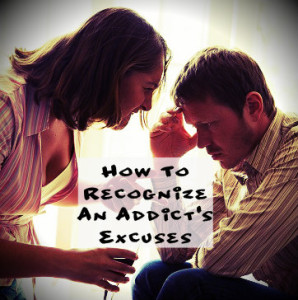 I need to use to be social – This is a common excuse used by introverts and the shy who have drug abuse problems. Drug or alcohol abuse should never be a crutch for socializing. In fact, it can make your friend look worse in social settings and can cause embarrassing situations.
I need to use to be social – This is a common excuse used by introverts and the shy who have drug abuse problems. Drug or alcohol abuse should never be a crutch for socializing. In fact, it can make your friend look worse in social settings and can cause embarrassing situations.
- I need to drink/use drugs to keep up at work – Using certain drugs can make a person feel high, powerful and energetic. Facing work and other responsibilities without the drug can seem daunting. Eventually, though, the drug abuse will catch up to him and make all responsibilities, at work and at home, more difficult.
- I only drink to relieve stress – And isn’t that how addiction begins? Drinking or using drugs is never a healthy way to cope with stress. The problems the habit causes will eventually create even more stress.
- I only use on the weekends/socially – There is no such thing as casual drug use. If your friend is getting high or drinking to pass out on Friday and Saturday nights, she still has a problem, and one that will only get worse.
- Everyone else does it – It may be true that you can look around a party and see people getting drunk, or even getting high, but you have no idea what their histories are. Comparing yourself to others is not a valid excuse to abuse drugs and alcohol.
- I can stop whenever I want to – As soon as someone utters this line, you can almost guarantee he has a problem. You should never have to convince others that you can quit whenever you want to. If you do, it means people are worried, and probably with good reason.
What You Can Do Once You Know The Addict’s Excuses
Being around someone who abuses drugs and alcohol or who is already a full-fledged addict means you are going to hear excuses. Learn to recognize them for what they are: pitiable reasons to continue using. When you know what to look and listen for, you can see addiction more clearly. Confront your friend or family member who is making these excuses and offer a solution: treatment.
Addiction is a disease, and like any physical disease, it requires treatment. Help your friend first recognize his problem by challenging his excuses. Then, be prepared to help him and to offer to get him into a treatment program. Doing it on his own will be a major challenge, but if you can be there to help him select a rehab program and to support him in his sobriety, he can succeed.
Read More On How Do I Know If I Am Enabling The Addict In My Life?



